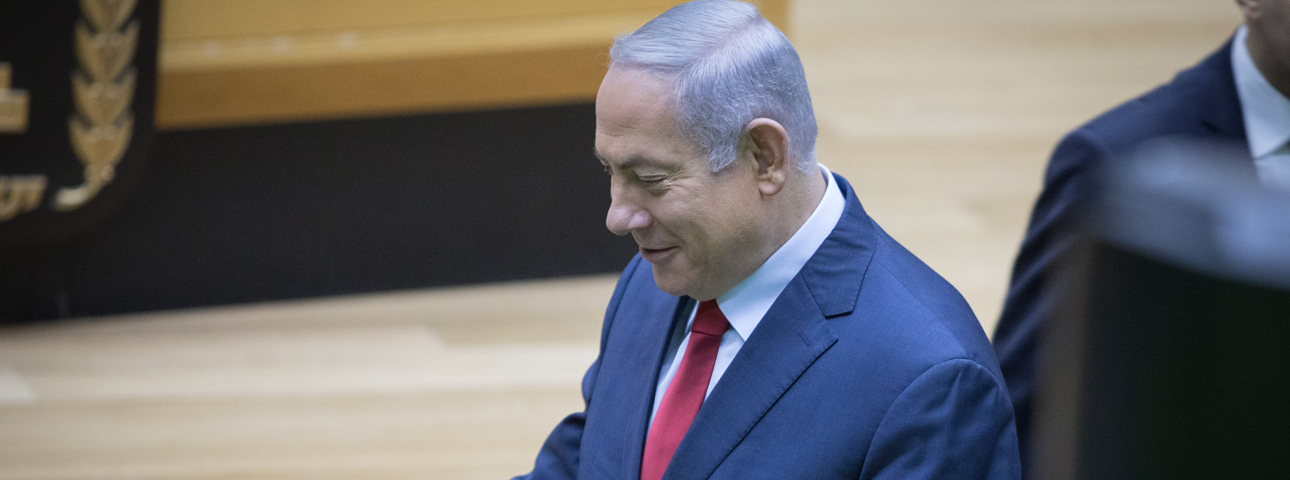Bribery or Breach of Trust
The essence of breach of trust is a conflict of interests in which decision-makers may find themselves when dealing with public matters. And we should pause to consider this conflict of interest, on the public level no less than on the criminal level

Flash 90
Bribery or breach of trust. One can go into the minute details of exactly what Netanyahu did, his intentions, and his mental state. But the truth is that it is more accurate to define his actions as breach of trust in the thorny context of Netanyahu and the media. The essence of breach of trust is a conflict of interests in which decision-makers may find themselves when dealing with public matters. And we should pause to consider this conflict of interest, on the public level no less than on the criminal level.
Reading between the lines of the Attorney General’s dry text, we can learn that the conflict of interest in which Netanyahu finds himself stems not only from his friendship with this or that tycoon or newspaper owner, but mainly from the fact that Elovitch and Mozes are not alone. There is a much bigger story, one which relates to another personal interest: Netanyahu’s fierce desire to wreak revenge for his twenty years of conflict with the media. This is a unique type of conflict of interest, one that is linked primarily to emotions and not to assets; it is not based on mutual back- scratching, but rather on a one-sided desire to punish and overpower the media.
What we can learn from Mandelblit’s measured presentation is that this is not just a case of a legitimate policy that Netanyahu, as an elected official, sought to implement, but rather of his overall mindset when relating to the media, which has influenced his capacity as a decision-maker to see the full picture, made his decisions appear to be less than objective, and impaired his ability to act in the public—rather than in his private-- interest. The intensity of this conflict of interest has distinguished it from the already sensitive relationship between every politician and the media.
Indeed, anyone who has followed the Prime Minister’s policy regarding the television market over the past five years knows that Netanyahu, when he decided to retain the Communications portfolio for himself; the stooges he later appointed to the position; and the director general he installed at the Ministry, who later turned the state’s witness against him: that they all acted in a conflict of interest, based not on a desire to assist Elovitch—Elovitch was there by chance—but out of a desire to wreak revenge on the media.
And this is the big story. Not the favors to Bezeq; not the irrational demand to break up the Public Broadcasting Corporation into two mini-corporations; not the talks with Mozes—but rather--the establishment of the Filber Committee, which did not draw on any background research or professional opinions about the economic aspects of the issue, and which had the sole purpose of shaking up the television market; and not even the text messages to Ilan Yeshua, the editor of Walla!. None of these, but rather the scandal of the Channel 20 Law amendment last February, which is eerily similar to all these other stories. And this is even before mentioning the clause in the coalition agreements that bar his coalition partners from objecting to anything Netanyahu may do regarding the media market, his refusal to reveal how many nocturnal chats he had with the editors of Yisrael Hayom, and the quashing of legislation on election propaganda so that he could operate on digital platforms in any way he chooses.
Even those with no preconceived ideas about Netanyahu must be perplexed by the irrationality and intensity of the emotions he expresses towards the media in general, and investigative journalists-- in particular. As students of media policy, we held serious discussions about whether there is even a need for public broadcasting. We asked how competition in the communications market can be ensured and how the market can be regulated. In fact, we were only useful idiots. Because if there is anything that is clear from Mandelblit draft indictment in the two cases related to the media, it is that Netanyahu was in a totally different state of mind than our rational discussion.
His personal interest was not about his friend—Elovitch--, but rather--revenge. And the best revenge against the media is placing it in a state of uncertainty. There are indeed morsels of truth in Netanyahu’s claims: The media has been blasting him over the years. The framing of his media image and that of his wife is not devoid of bias and interests; quite the contrary. But Netanyahu, like an angry deity, went on a vengeful and uninhibited rampage, in which the goal justified any and all means. And this is the conflict of interest, and this is the breach of trust.
This article was first published in Times of Israel.
